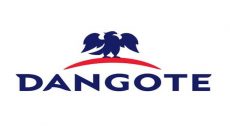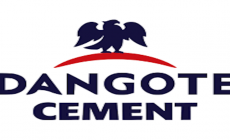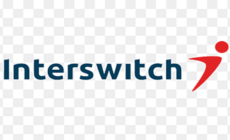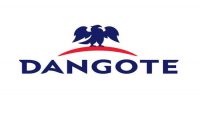The Bank of Industry (BOI) recently disclosed that it recorded an increase of N500 billion in its authorised share capital over the past 16 years and raised $5 billion from international capital markets in seven years. The bank also established a presence in 33 states across the nation, just as it reaffirmed its commitment towards driving sustainable industrialisation in Nigeria.
In recognition of the pivotal role of MSMEs in national economic development, the Bank engaged 122 SME consultants in 2014 and entered into strategic alliances with 10 SME-friendly commercial banks. Today, BOI
has over 300 Business Development Service providers supporting SMEs nationwide.
Impact on MSMEs
According to the National Bureau of Statistics (NBS) and the SME Development Agency of Nigeria (SMEDAN), there were 39,654,385 MSMEs in Nigeria as at 2020. Statistics show that SMEs account for 96 percent of businesses and 84 per of employment in Nigeria.
In spite of their vital contribution to employment, poverty reduction and economic growth, MSMEs continue to face daunting challenges in accessing finance in the forms of high interest rates, difficult collateral requirements, and a lack of formal credit history.
In order to mitigate these challenges, BOI raised approximately €2 billion fund at Bank of Industry to boost its interventions and operations.
The capital raising is expected to deepen BoI’s developmental impact in the economy, bridge the current annual development financing funding gap in Nigeria of over $35 billion and support the implementation of BOI’s 2025 – 2027 corporate strategy.

Olasupo Olusi, Bank Of Industry (BOI) MD/CEO
Also, the inclusion of BOI by President Bola Tinubu in his New Year message as one of the major promoters of National Credit Guarantee Company (NCGC) will enable BOI to deploy more securely the huge resources that it continues to mobilize from the international financial markets by sharing risks with NCGC. Having BOI loans, particularly to MSMES, guaranteed under the new scheme would enable the bank to safely disburse more loans to operators in the private sector.
President Tinubu said the Company, which would start operations before the end of the second quarter, is a partnership involving government institutions, private sector players and multilateral organizations.
President Tinubu stated that the funding will better position the bank to achieve his administration’s plan to lower food inflation and the prices of essential medical supplies by increasing industrial production and
productivity.
The international financial markets remain a pillar in fund mobilization for private institutions to meet their operational goals. For Bank of Industry (BOI), it opened a new milestone for its operations after it raised €1.879 Billion in 2024 to support funding of critical developmental projects. It was the highest amount ever raised by any Nigerian or African development financial institution (DFI).
Infrastructure finance demands long-term and high value financing and through this fund raising, BOI will seek to address industry infrastructure challenges which impose a high cost of doing business on manufacturers in
Nigeria.
Stakeholders say the confidence in BOI demonstrated by this historic transaction will enhance its ability to access additional sector specific funds particularly funds that are targeted at critical sectors and segments like
Gender, Youth, MSMEs, Agriculture, ESG and Sustainability, among others.
From a risk management perspective, the funds will help the bank with credit risk leading to longer payback periods and leveraging partnerships to derisk Lending to MSMEs, Gender etc. and expand access to financing. Also, Green, Climate and Environmental Financing are key considerations of BOIs new strategic focus. According to analysts using private capital to fund public infrastructure/developmental needs reduces the financial burden on governments and promotes efficiency and innovation in the economy.
Boost for women-led businesses
BOI has also reaffirmed its commitment to empowering women entrepreneurs by allocating at least 15 per cent of its risk assets to women- owned or women-led businesses. Over 833 such businesses have been
financed, with N99 billion disbursed to overcome barriers women face in accessing finance.
The Women Entrepreneurs Finance (We-Fi) programme is one of BoI’s key initiatives to dismantle these barriers. Additionally, BoI signed a $50 million portfolio guarantee agreement with the African Guarantee Fund (AGF) to support the Affirmative Finance Action for Women in Africa (AFAWA) program.
Olasupo Olusi, the bank’s MD/CEO emphasised the bank’s commitment to gender equality and financial inclusion, aligning its initiatives with President Tinubu’s Renewed Hope Agenda.
“We have impacted the lives of countless Nigerians by supporting businesses, promoting job creation, and facilitating inclusive economic growth. By prioritising women-owned businesses and environmentally sustainable enterprises, we are saying that women must not just participate in Nigeria’s economic story, they must lead it,” he said
Performance indicators
Several unprecedented achievements were recorded by BOI in 2024 and will go down as the most successful in its 65-year history.
The newly raised funding will significantly expand the Bank’s balance sheet, increasing it by N3.3 trillion to reach a projected balance sheet footing of N7.1 trillion, up from N3.9 trillion reported in 2023. By these
accomplishments, BOI demonstrated its capability to make significant contributions towards providing solutions to Nigeria’s industrial financing challenges.
Recognized for its sound management, BOI has consistently maintained investment-grade ratings by Fitch and Moodys since 2015, underscoring its reputation as one of Nigeria’s best-managed government institutions. This achievement reflects the quality of BOIs governance, its financial management and the global confidence in its development mandate.
The €1.879 billion syndication not only drew remarkable interest from a diverse array of international institutions across various countries but also attracted over 10 new international investors, particularly from the Middle East and Asia.
The 187.9 per cent oversubscription of the syndication highlights the innovative financing achieved through a dual-layer guarantee structure, leveraging support from the Africa Finance Corporation (AFC) and the Central Bank of Nigeria (CBN) for optimal risk-sharing.
This structure allowed BOI to secure much lower interest rates than those typically applied to Nigerian debt instruments, resulting in savings of approximately 3.6 per cent per annum (or an estimated N295.7 billion over
the three-year tenor). These favorable terms will reduce the cost of borrowing for the real sector making it more competitive.
According to Olusi, the low pricing and favourable terms will ensure that the much-needed low interest and longer tenured funds are available to Nigeria’s growing private sector in line with the vision of President Tinubu.























